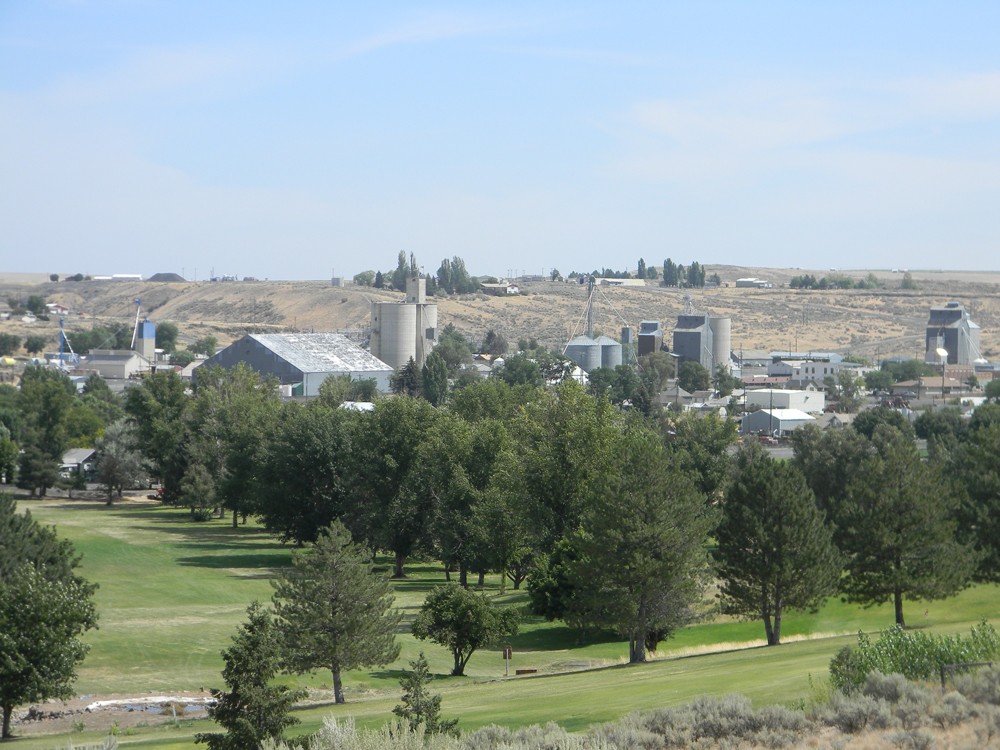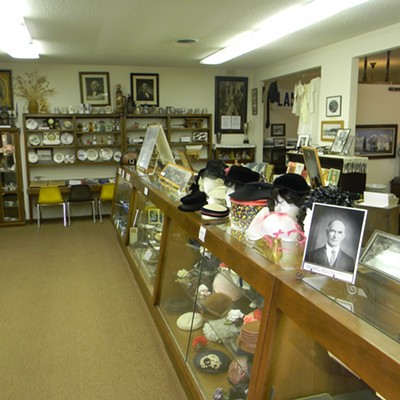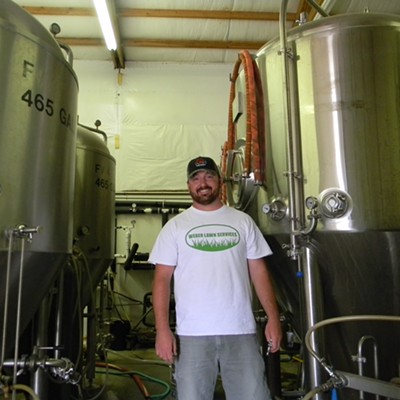Odessa is not quite a square mile full of 900 people, resting like an island in the sea of golden grains carpeting Lincoln County.
It's a farming town with no stoplights, where people wave to each other while passing in their dust-covered pickups. It's a town where men wear short, tidy haircuts and give firm handshakes. It's a town of forearms tanned from the harvest sun.
It's a town whose roots span continents, where people spend their free time volunteering on boards and civic groups, all attempting to pull Odessa from a fate that's befallen small towns everywhere.
Odessa is a town that begins, for some, with a cup of coffee and sausage sandwich at Chiefs Bar and Grill.
This morning at Chiefs, there are eight coffee drinkers at one table, mostly retired or near retired. In the center of the table is a trimming of purslane, an edible weed that grows locally.
"They had a recipe on how to eat the weeds," says one coffee drinker. "It was in the paper."
"He said it's not much flavor," says another coffee drinker of someone she knows who tried it.
"Maybe he should cook it with bacon," chimes in another coffee drinker. "Everything is better with bacon."
Another coffee drinker changes the topic to a recent fishing trip, where something, a trout or maybe a salmon, snagged his line.
"I had no idea what it was," he says. Whatever it was, it was big.
"It could have been a rubber boot," someone says.
The waitress is busy, so Doug Plinski, who's winding down an eight-year stint as mayor, grabs the pot of coffee and pours refills.
"Doug never pours coffee," says one of the guys.
"Maybe it's re-election time," teases another.
Coffee poured, he sits down with the others to roll dice to determine who will pay the bill (Plinski ends up paying).
"I still question why I came," says Plinski, an upbeat 63-year-old who moved here in 1983 when Avista relocated him from Colville. "But what I lost in mountains and aesthetics, I gained in community."
Odessa's downtown is peppered with closed businesses, like the Rolling Thunder Saloon or the Odessa Inn Family Restaurant. But Odessa, says Plinski, is doing relatively well, pointing to assets other small towns lack. There's a pool and a hospital, which residents support with levies even though it runs in the red, caring primarily for older residents. There's also a K-12 school district, which residents also support with levies. Its most recent class of 15 graduating seniors landed $354,000 in college scholarships.
Plinski says that the town stays together through people volunteering, serving on multiple boards and organizations. The Lions Club built and maintains a bathroom in the park, among other projects. A group called Friends of the Pool holds fundraisers and helps maintain the town-owned pool, allowing it to stay open.
"You'd go crazy if you weren't involved," he says of life in Odessa.
As agriculture consolidates, the town's youth are squeezed out of farming, unable or uninterested in paying $250,000 for a combine. To stay viable economically, the town hopes to get a little bit bigger (but not too big), seeking to attract biofuel companies or even Internet-based businesses.
Plinski predicts that Odessa will become a bedroom community for Moses Lake, drawing workers to Odessa's brand that's been developed by town leaders: Kids can ride bikes to the pool and get a quality education. Quiet. Safe. No hustle. No bustle. The backdrop of a 1950s TV show.
"Ghost town USA is all over the country," says Plinski. That fate is what Odessa hopes to avoid.
Odessa has its origins in the late 1800s, when the Great Northern Railway was completed. Ethnic Germans living in Russia, seeking free land and an escape from the repressive czarist government, started settling in the area.
When people die in Odessa, many donate some of their defining possessions to the Odessa Historisches Museum.
The museum is full of objects dating back to the town's founding: an ancient scythe, reapers, early tractors, a 100-year-old German Bible, smoking pipes, cars with "horseless wagon" plates, tools from a decades-old dentist's office, black powder firearms, a lithograph press left by a former owner of the Odessa Record and many other relics.
The town has celebrated its history each September for the past 44 years with Deutschesfest, a three-day event that sometimes attracts tens of thousands of people who gorge on locally made sausage, strudel and kraut ranza, and drink kegs and kegs of beer. It's a unifying event. Nearly every resident pitches in. Some are even motivated to mow their lawns.
"It's all part of the German heritage," says local farmer Clark Kagele of the town's ethos. "You just all get together and do it."
Since 1976, Kagele has played trumpet or drums in the Oom Pa's and Ma's, a band of lederhosen-clad locals who have played the festival every year. The band's motto: "If it's sounding out of tune, have another beer!"
Kagele says the town's younger generation is showing a new interest in Odessa, drawn to its low taxes and low cost of living.
This generation includes Marcus Horak, a soft-spoken 29-year-old who co-owns an auto parts store, serves as president of the local chamber of commerce and sits on the school board. Born and raised in Odessa, Horak says he's considered living in a city, but this is what he knows.
"You don't want to see it die," he says. "People should be flocking here." ♦
ODESSA
Population: 910 in the 2010 census
On the map: 30 miles northwest of Ritzville
Annual event: Deutschesfest, an annual three-day celebration of the town's German heritage, held this year Sept. 18-20.
Notable name: George W. Finney, early homesteader and founder of Odessa






